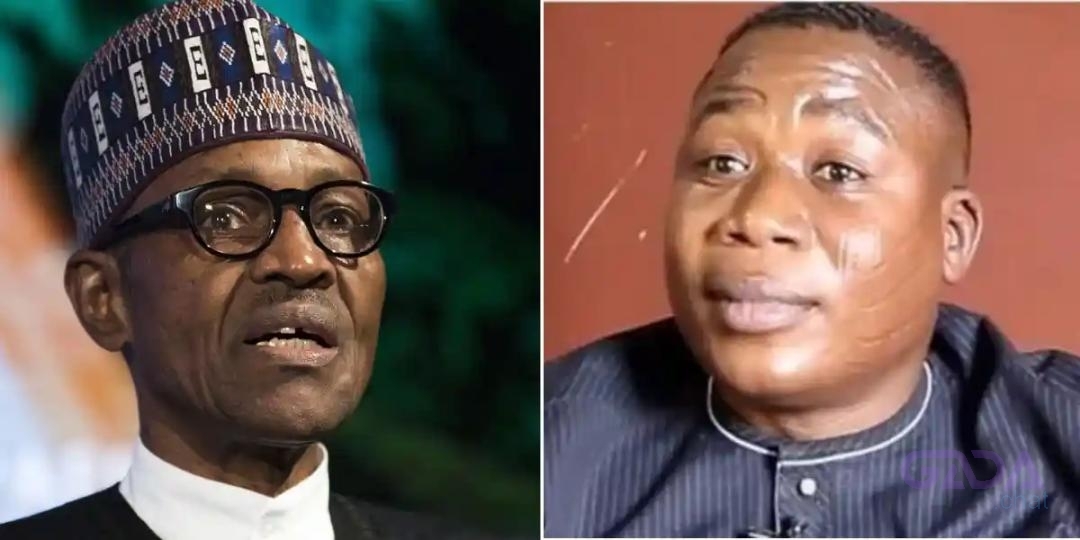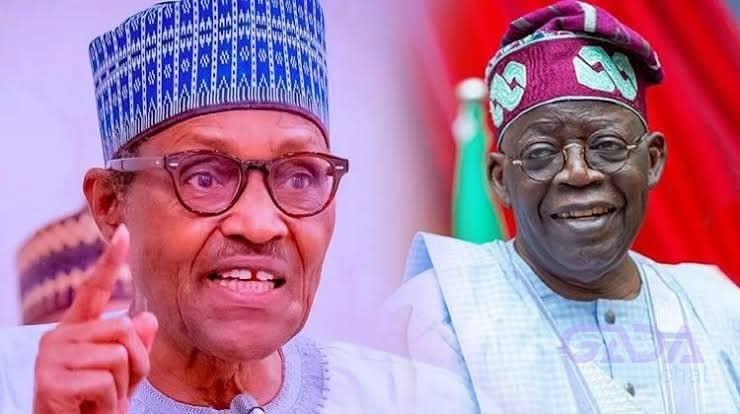From Northern Monopoly to Yoruba Rotation?
A Deep Look at Buhari vs Tinubu Appointments and the Tribal Virus Slowing Nigeria
They say the more things change, the more they stay the same — but in Nigeria, it seems things just change tribally, not nationally.
Let’s start with the facts.
During President Buhari’s administration, key federal positions were overwhelmingly filled by individuals from the North. Not just the heads of agencies, but even their deputies. From EFCC to DSS, NNPC, NDLEA, NPA, NSCDC, NIS, FRSC, NPS, and nearly every other major institution — it was North on North. In fact, over 80% of these agencies had both leaders from the same region. It wasn’t governance; it was regional occupation.
Now enter President Tinubu. A new era, a new hope. But did we really leave tribal politics behind?
On the surface, Tinubu’s appointments show more balance. Agencies now have North–South or South–North combinations. There’s a visible attempt to mix things regionally. At least, on paper, it looks like a step in the right direction.
But here’s where it gets messy — almost all the Southern appointments under Tinubu are Yoruba. His tribe. From AMCON to the Army, Navy, DIA, DSS, and more, it’s still ethnic stacking, just done differently. We’ve moved from Northern monopoly under Buhari to Yoruba favoritism under Tinubu. Same wine, different tribal bottle.
WHY TRIBAL APPOINTMENTS ARE DESTROYING NIGERIA
1. They kill meritocracy — people are chosen based on tribe, not ability. That’s why institutions rot.
2. They destroy national unity — no one wants to believe in “one Nigeria” when only one group dominates.
3. They fuel ethnic tension and resentment — every tribe begins to see others as threats instead of partners.
4. They block true federal character — when only Hausa, Fulani, or Yoruba dominate, where are the Igbos? The Ijaws? The Ibibios? The Tivs? The Nupes?
5. They breed mediocrity at the top — because positions are shared like family inheritance, not national responsibility.
TINUBU VS BUHARI: WHO’S MORE TRIBAL?
Let’s be honest.
Buhari didn’t even pretend to balance. The North had it all. The South was an afterthought.
Tinubu is trying to mix things — but only if you're Yoruba. The Igbo man is still watching from the sidelines. South–South is barely noticed.
So the Obidients who cry “tribalism!” under Tinubu aren’t entirely wrong — but many of them were silent under Buhari.
And the Buhari loyalists who scream “Tinubu is fair” are conveniently forgetting how they defended Northern domination for 8 years.
Hypocrisy is the only thing everyone seems to share equally in this country.
IF NIGERIA MUST MOVE FORWARD...
We must kill tribalism in appointments. The presidency is not a tribal office. National agencies are not clan estates. Until we put merit and fairness above tribe, Nigeria will continue to crawl while other nations run.
Let appointments reflect federal character, not ethnic calculation. Let every Nigerian child — North, South, East or West — believe they can rise to the top without a tribal godfather.
Who did worse — Buhari or Tinubu?
Is Tinubu’s balance real, or is it Yoruba rebranding of old tribal games?
Can Nigeria ever break free from ethnic politics?
Drop your thoughts. Argue with sense. But speak your truth.
#WalaataPapers #NigeriaFirst #TribalismKills #TinubuVsBuhari #Obidients #Jagaban #ArewaPolitics #NaijaMustChange🔥 From Northern Monopoly to Yoruba Rotation?
A Deep Look at Buhari vs Tinubu Appointments and the Tribal Virus Slowing Nigeria
They say the more things change, the more they stay the same — but in Nigeria, it seems things just change tribally, not nationally.
Let’s start with the facts.
During President Buhari’s administration, key federal positions were overwhelmingly filled by individuals from the North. Not just the heads of agencies, but even their deputies. From EFCC to DSS, NNPC, NDLEA, NPA, NSCDC, NIS, FRSC, NPS, and nearly every other major institution — it was North on North. In fact, over 80% of these agencies had both leaders from the same region. It wasn’t governance; it was regional occupation.
Now enter President Tinubu. A new era, a new hope. But did we really leave tribal politics behind?
On the surface, Tinubu’s appointments show more balance. Agencies now have North–South or South–North combinations. There’s a visible attempt to mix things regionally. At least, on paper, it looks like a step in the right direction.
But here’s where it gets messy — almost all the Southern appointments under Tinubu are Yoruba. His tribe. From AMCON to the Army, Navy, DIA, DSS, and more, it’s still ethnic stacking, just done differently. We’ve moved from Northern monopoly under Buhari to Yoruba favoritism under Tinubu. Same wine, different tribal bottle.
❗WHY TRIBAL APPOINTMENTS ARE DESTROYING NIGERIA
1. They kill meritocracy — people are chosen based on tribe, not ability. That’s why institutions rot.
2. They destroy national unity — no one wants to believe in “one Nigeria” when only one group dominates.
3. They fuel ethnic tension and resentment — every tribe begins to see others as threats instead of partners.
4. They block true federal character — when only Hausa, Fulani, or Yoruba dominate, where are the Igbos? The Ijaws? The Ibibios? The Tivs? The Nupes?
5. They breed mediocrity at the top — because positions are shared like family inheritance, not national responsibility.
💥 TINUBU VS BUHARI: WHO’S MORE TRIBAL?
Let’s be honest.
Buhari didn’t even pretend to balance. The North had it all. The South was an afterthought.
Tinubu is trying to mix things — but only if you're Yoruba. The Igbo man is still watching from the sidelines. South–South is barely noticed.
So the Obidients who cry “tribalism!” under Tinubu aren’t entirely wrong — but many of them were silent under Buhari.
And the Buhari loyalists who scream “Tinubu is fair” are conveniently forgetting how they defended Northern domination for 8 years.
Hypocrisy is the only thing everyone seems to share equally in this country.
🤯 IF NIGERIA MUST MOVE FORWARD...
We must kill tribalism in appointments. The presidency is not a tribal office. National agencies are not clan estates. Until we put merit and fairness above tribe, Nigeria will continue to crawl while other nations run.
Let appointments reflect federal character, not ethnic calculation. Let every Nigerian child — North, South, East or West — believe they can rise to the top without a tribal godfather.
Who did worse — Buhari or Tinubu?
Is Tinubu’s balance real, or is it Yoruba rebranding of old tribal games?
Can Nigeria ever break free from ethnic politics?
Drop your thoughts. Argue with sense. But speak your truth.
👇👇👇
#WalaataPapers #NigeriaFirst #TribalismKills #TinubuVsBuhari #Obidients #Jagaban #ArewaPolitics #NaijaMustChange










